Unbelievable! The Blueberries in Blueberry Pancake Mix Aren't BLUEBERRIES!
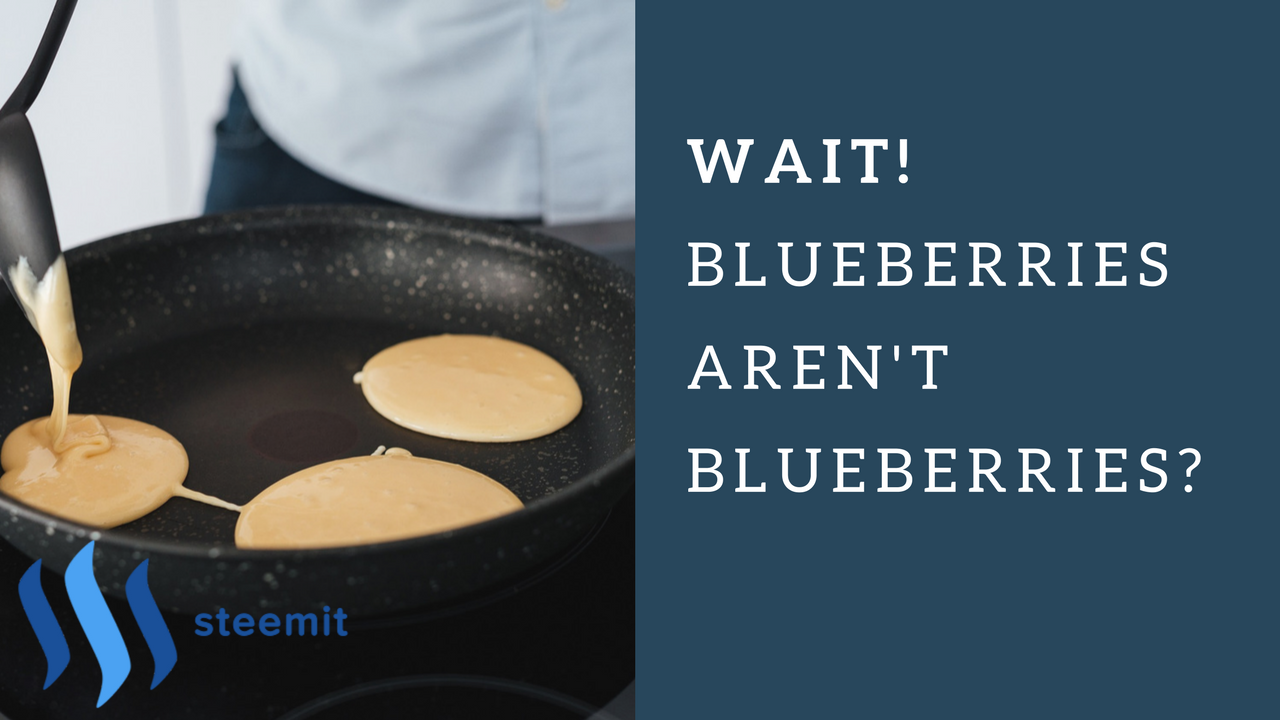
One thing I've learned to care about more is the quality of the food I feed my family. Below are some foods people eat commonly, and the truth behind what they actually are. Some are just interesting, others, kind of gross.
"Strawberry" Pieces in Your Oatmeal
Do you ever eat "Strawberries and Cream" oatmeal? You might be surprised to find out what those strawberry bits actually are. Why take my word for it. Let's go to the ingredients label:
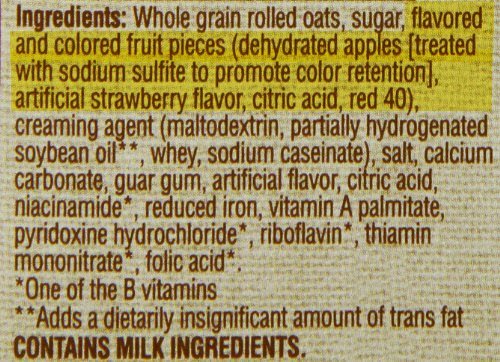
That's right. Instead of putting strawberry pieces into the "strawberries and cream" oatmeal, it made more sense to dice up apples, dye them red and artificially flavor them strawberry.
"Blueberry" Pancakes
The blueberries, may not be blueberries. Here is what you'll find on many ingredient labels (notice the distinct lack of the word "blueberry."
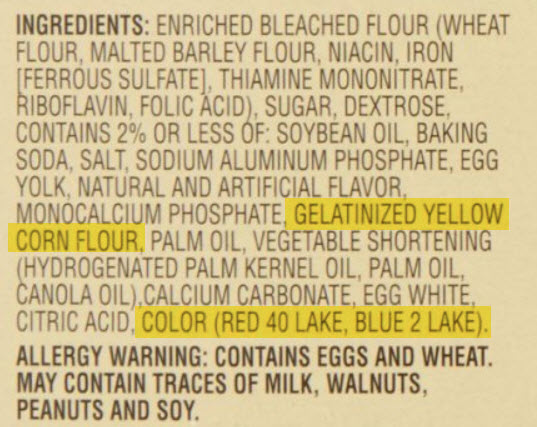
Instead, you're getting gelatinized corn flour that is dyed and artificially flavored.
"Maple" Syrup
I thought this was common knowledge, but most people are stunned when they learn the truth about this. I'm sure that when you think of Maple syrup, you think the ingredient label looks something like this:
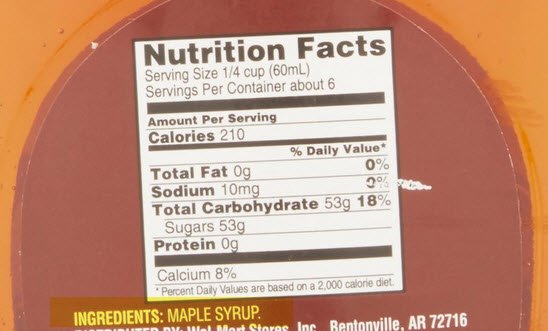
That would be true if it were Maple syrup, but most people have "pancake syrup." If you pay $1-$4 for your syrup, then chances are good, the ingredient label looks like this:
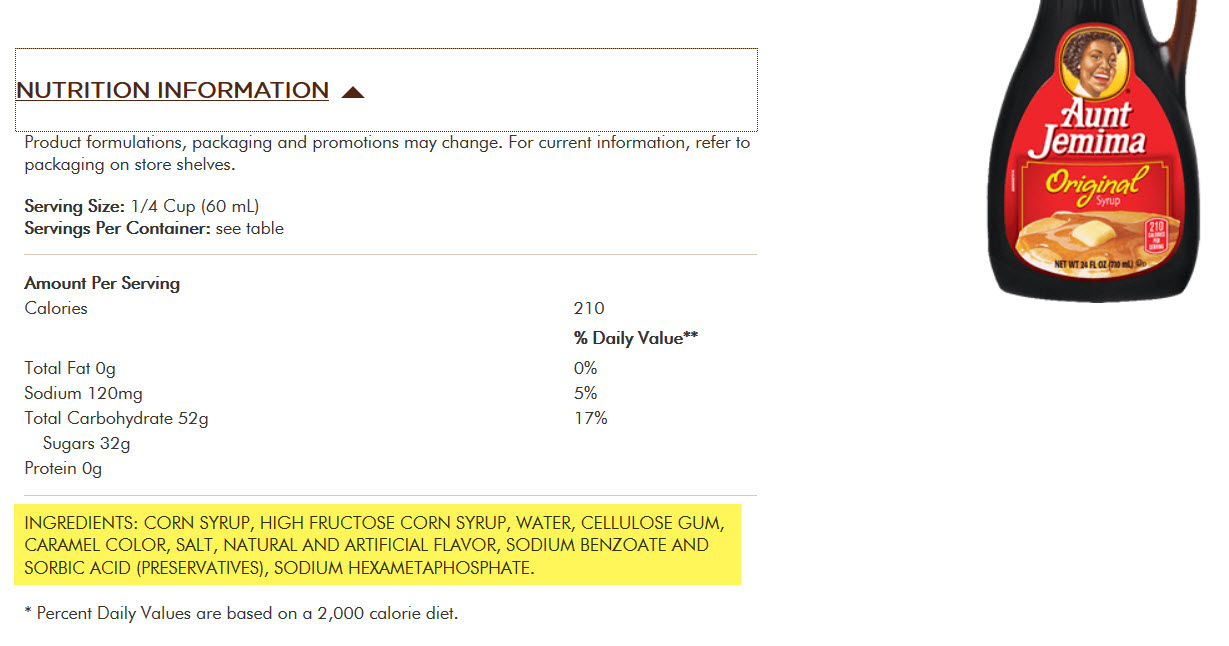
Real Maple syrup often costs about $6-$20 per bottle of varying sizes and possibly more if you want organic.
Bread
Oh yes, even this staple couldn't escape industrial food production. Before we get to it, let me first start by giving you a 1 question quiz:

The answer: L-cysteine
High-five to anyone who got that right. Naturally, L-cysteine is a common ingredient in breads as a dough conditioner. It's hard to pin down the actual sources for what is used in commercially produced bread, but there is no question that the majority comes from duck feathers, animal hair and yes human hair. Synthetic L-Cysteine is available, but substantially more expensive, so often is not used.
Salad Bar Ham Cubes
You know those little cubes of ham at the salad bar? When I was a teen, imagine my surprise when I was working at a salad bar and found out what they actually are: ham flavored turkey cubes that are dyed pink. To the defense of salad bars, there are some that use actual ham cubes, but many of the largest chains use the turkey cubes.
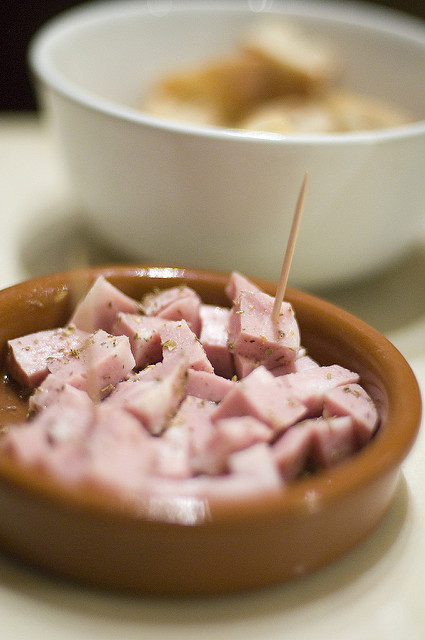
Ham and bread by jen and joe, on Flickr
Of course, much of this won't be surprising to people who have researched industrial food production, but for those that haven't, I hope I've begun to open your eyes. There are so many more examples, and if this post goes over well, then perhaps I'll produce a follow up. Thanks for reading!

Yep, I remember long ago I had a blueberry muffin mix that said on the box, "Real Blueberry-like Nuggets!", lol!
Hahaha! Clever marketing isn't it? I bet their hope was people would see "Real blueberry..." and stop reading. It's such a shame. I wonder how much money they truly save with these shortcuts? Why not charge the extra quarter per box and give your customers what they're actually looking for?
Well, things are changing. Like yourself, people are reading labels and becoming more discriminating again.
I'm happy that's the case too! It needs to change. I want my kids to grow up on wholesome foods. I'm making a lot more stuff from scratch. It's empowering knowing every single ingredient that goes into the food I've made :).
Soylent Green

It's People!!
Classic line wasn't it
Oh absolutely! A very prescient film also (not literally, but quite close in many ways) LOL!